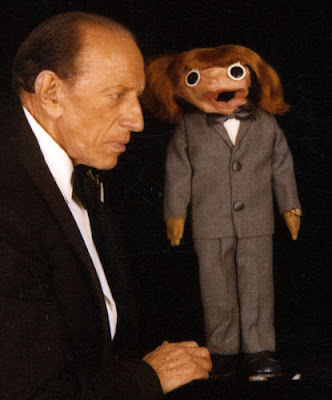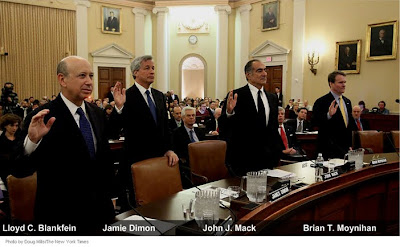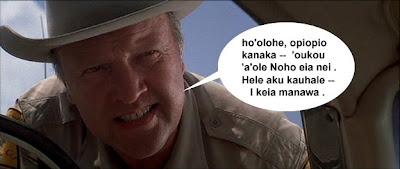Elizabeth Gilbert is a publishing sensation.
That's all, really; she isn't an amazingly insightful writer or even a particularly good one. But, all kinds of advertising from her publisher, and piles of her publisher's offering just inside the entrances of mega-chain book sellers, said her first book was
"sensuous and audacious... [a] spiritual odyssey as deeply pleasurable as it is enlightening" (Booklist) ... "[A] deeply personal story, fun and inspiring... You will laugh, cry and love with a more open heart" (Rocky Mountain News) ... "An irresistible, candid, and eloquent account of [Gilbert's] pursuit of worldly pleasure, spiritual devotion" (Powell's Books) ... "a magnificent tale" ... "easily one of the best books of the decade" ... "powerful" ... "archetypal".
Commercium et Praestigiae: Not Everyone Buys That Gilbert's
Book Is The Most Important And Seminal Trailblazing Literary
Work Since Danielle Steele Or The Thornbirds
In brief, Gilbert was in a marriage that wasn't doing well. In fact, it imploded. In divorcing the Husband, she effectively gave up claims upon her half of all community property, an unusual step in an dissolution action; Gilbert declines any details. But, no matter -- she was once again single, devastated, and wondering what the next move would be.
Gilbert asks us to believe that she was lying on the floor of her bathroom, her emotional world coming apart, when she had a conversation with god (Gilbert gushed, "...I wanted to say...'I've always liked your work'..."), and then set off on a world tour to find what she wanted in life. The book, Eat, Pray, Love, was Gilbert's ruminations on these three topics as she moved through her emotional roller-coaster, post-marriage life. There is food (which everyone likes), religion (which will satisfy the Xtian Believers); and romance! And a happy ending (Which Hollywood likes)!
So far as I know, there was lots of god, but no Dog, in Gilbert's
book.
Not even a furry, happy puppy. Don't buy it. Woof Woof.
Gilbert has gone on the seminar circuit, in the same manner as Dwayne Dyer and Suzie Ormond, talking about the spiritual awakening she had in India and pushing a message of meditation and spiritual healing in order to be of more use to others and yourself. It's been very popular with crowds of women who've come out to hear Gilbert speak and buy her book; she is supported and promoted by Oprah Winfrey, who compared the frisson she felt having Gilbert on her program to meeting Bono of U2 (For her part, Gilbert said to ABC News, "I won't hear a bad thing said against Oprah. She's certainly supported me").
I'm sure Gilbert's journey was important to her, personally. And I support on a fundamental level the idea that each of us should engage in a search for connection with the sacred and unknowable -- what Jung and Einstein referred to as the "Sense Of The Mysterious". For me, it's answers to the Big Questions: What is the nature of Reality? Where did the Universe come from? Where did we come from; where are we going?
And, I appreciate the idea that by broadcasting her experience to a wider audience, Gilbert may encourage her readers and listeners to make their own connection with that Mystery. But there's a darker, commercial aspect to Gilbert's presenting her story -- and because the publishing world presenting it could care less about spirituality.
And, call me cynical, but I believe that Gilbert's book is less relevant to, say, a single mother living in Gaza City, or a subsistence farmer in a refugee camp in Darfur; or, a member of a crew-serviced weapon at a firebase in middle-of-nowhere Afghanistan, than members of Oprah's book club. But that's the beauty of the free market, you might say; if you don't want or need to buy Gilbert's book, then don't. I wish it was that simple.

There May Be Other Things Going On More Important Than
The Most Recent "Important" Book Which Everyone Should Buy
Gilbert's books are the result of what the few mega-publishing companies which dominate the market believe in: A personal if second-rate confessional tale, which adds nothing new to Western culture (or Eastern, come to that) can, with enough advertising, be touted as an "important" book which everyone should spend money to buy. It's the phenomenon of almost anything based in predictably, lowest-common-denominator values being declared as "important".
Courting Power: Lizzie Hearts Oprah, Who Hearts Liz, Which Sells
I have a continual sense of amazement that any creativity is pursued by people simply for the substance and value they can obtain from it, personally. There are books being written of staggering, heartbreaking power; and small films, posters, imaginative animation and whimsical comedic plays are being produced -- and none of them are promoted or known outside their relatively small circles of friends and admired.
No matter what you think of Burning Man, the annual desert Solstice-Get-Your-Freak-On celebration, the amount of creativity behind it (the logistics, art; architecture; costuming; music) is massive. More, certainly, than in the days when Larry Harvey and members of the Suicide Club took the first wooden Men down to Ocean Beach and set them on fire.
But, none of that kind of creative effort receives much attention or promotion.
Certainly not by the NewsCorp-, Wal-Mart-, Borders-, or Oprah-style promotion and sales industries (which are ultimately about about mass production of whatever shiny object of the moment can be sold to the most people). Quality and value can be found in things, and in thoughts -- but you have to have to have the intellectual ability and critical discrimination to find them in the first place.
An Ex-Girlfriend Once Said, Looking Good
Isn't The Most Important
Thing -- It's The Only Thing.
Some time ago, I posted a comment at Salon in response to an article about the H&M clothing lines; they were the fast food of couture, I said, and not manufactured to last more than a few years before falling apart. H&M's business model is simple: Sell a large quantity of goods at medium prices to the largest number, and don't even pretend they're more than throwaway items.
That the clothing isn't made to last is part of H&M's cachet, a postmodern statement that emphasizes the ephemeral, image- and profit-driven aspects of commerce over real quality -- which was once the hallmark of manufacturing nearly anything.
Through at least half of the 20th Century, companies touted themselves as selling products that were meant to last -- manufacturers said proudly that the reason to purchase their product was its quality, and longevity. My own idea is that almost anything was produced by a culture originally rooted in a sense of certainty and permanence, the sense of an Afterlife, and that the Earth abideth Forever. This was shaken badly by the bloody shock of the First World War, Revolutions, the Great Depression, and the end of the 'Old World'.
The Second World War, nazism and the Holocaust, the Bomb; all contributed to a who-cares, we're-all-gonna-die-in-a-nuclear-war cynicism and existential angst which finally rejected that sense of permanence in earlier generations ... but, that's another story.
I don't know about anyone else, but the kind of mass culture represented by H&M, McDonalds, or commercial teevee; pop music, or even Viking / Penguin (which publishes Gilbert's writings; once an American company, now owned by
Pearson PLC, a conglomerate based in Great Britain)... on one level, I feel like a veal calf, except in place of a tiny pen, I'm locked in a cycle which consists of
work --> earn --> spend money on crap. That insults me.
Airline Safety For You And Me: What You Get For Your Fare
And it's not only insulting. As a business model, it's anti-democratic. It promotes a class structure in commerce, saying flatly that most people are Rubes; a pack of herd animals, incapable of real judgment or an understanding of quality -- and so deserve to be treated like children by advertisers, and sold clothing which falls apart, homes which sprout toxic mold and chemical fumes; furniture made out of particle board; toys covered in lead paint, and meat with e.coli .
This business model says we're here only to fork over our money; nothing more.
But this state of affairs also means that there is a class of "better" products (and lifestyles), somewhere above us. That you can live in a home that isn't a McMansion full of formaldehyde fumes, or buy a coat good for a lifetime of wear, or drive a car that doesn't break down or flip over. You just have to be able to afford it.
But, we can't. So we buy crap to wear, to use, eat, and read -- and the people who want to sell it to us claim that what we're getting is the best, top-of-the-line; exclusive, limited... or, "easily one of the best books of the decade". Worse, it's a joke everyone is in on. People understand they're being conned and treated like sheep. We complain, but we go along; Whadya gonna do? Can't fight City Hall.
I Got A Business To Run; I Got Bills To Pay.
What's The Big Deal?
God knows, the Banking and Finance sectors (not to mention the Insurance and New-home Construction industries) treated us that way in the eight years between repeal of the Glass-Stegall Act (1999) and The Crash (2008)... and how'd that work out for America?
Even if she's decided to write like one, Elizabeth Gilbert isn't a talentless hack. She had penned some fiction years before which showed promise, but faced the second-most-common roadblock for any struggling writer -- Gilbert had an agent (getting one being the first most-common issue), but couldn't get a publisher interested enough to promote her.
In part, that was because her early writing was art -- fiction -- and publishers don't really give two fucks about art. It isn't that important to them.
What gets agents' and editors' attention is the "commercial viability" of a manuscript, which they frankly call a "property". It's a commodity, and they're in it for the money, honey. And -- hey! If there's some art in there, well; ahhhh, that's real nice. Whatever. Yeah.
Getting In Touch With Her Inner Tube: Gilbert Meditating In Bali
This is what publishing is about, in These Days. It's emphatically not about a finding and publishing the next Flannery O'Connor, or the next Thomas Wolfe, Ralph Ellison, Amy Tan, Ken Kesey, John Steinbeck, Joan Didion, or William Kennedy. It isn't about adding to the roll of authors whose voices have helped to describe and define the experience of being American. Publishing is more about marketing, and about money, than art -- and while that's always been to some degree true, it's the dominant paradigm now.
Knowing this, Gilbert made a decision to write about her divorce, and the 'Upper-Middle-Class White Girl's Search For Herself' that followed. Her agent sold Viking / Penguin on the idea of a book, and negotiated a hefty advance. Viking put Gilbert together with an editor to create a book that would sell. Add some smart marketing to create a buzz in an already-established genre: Gilbert would be the new, hot 'confessional' writer (because that's how her spiritual search would be packaged), and -- for a while -- everyone would profit.
Gilbert needed an outlet for the emotions around the destruction of her marriage; she wasn't going to return to College and become a Neurosurgeon. Writing was what came more naturally for her -- but, she made a choice to forget being an artist and followed the money, rather than labor at her craft even if it never made a dime -- because on one level, the cash (and showing your ex that you're hot and they're a steaming pile of poop) is what she needed.
(Photo: 'Your Book Is Remaindered', UK Guardian)
And so, Gilbert became an instant sensation -- feted, relatively more wealthy; and a celebrity. Everyone wants to wet their beaks in her success and make something out of it for themselves: Oprah adds EPL to her Book Club; there are tours and talks and speaking engagements and seminars; Julia Roberts (!!!) will play Gilbert in a film adaptation of her first book.
Most people would see this as a rags-to-riches, American Dream come true.
It benefits Pearson LLC, and Oprah, and MegaChain Books Inc., and the guys who operate the AV equipment for Gilbert's speaking tours; and Julia Roberts, and Hollywoodland -- and, of course, Gilbert herself. But for the rest of us, her books and DVDs and all the rest are just more overhyped items, like a $17.99 Leopard-Skin-Print-Whatever from H&M, purchased and then dropped in a drawer.
Eventually, Gilbert will fade from view and memory, having had her 15 minutes, taken her cut and bowed off the stage. For all that frantic public attention, she will leave nothing of value behind except copies of her books in 'Remaindered' bins -- becoming (as Julia Roberts said in Notting Hill) "a ... middle-aged woman who looks like someone who was famous for a while."
Gilbert And Julia Roberts: If You Squint, There's A Resemblance
As a boy-tourist in the 50's, I accompanied my parents on an evening walk around Cannery Row in Monterey when it was still 'Cannery Row': Blocks of well-used warehouses and light industrial buildings on piers over the water; narrow waterfront roads with low-wattage streetlights attached to telephone poles; the tideline smell of salt and decaying seaweed.
In one open warehouse, a man sat on a chair surrounded by open wooden shipping boxes (reinforced with tin strips and spilling out piles of excelsior packing), within which were all kinds of items -- sets of dishes and silverware, carved figurines and bolts of printed silk -- imported from Asia. In the center of the room was a huge, gold-and red Buddha, surrounded by burning sticks of incense.
Quaeque ere Praestigiae, Ha Ha Ha Ha Ha.
Out of curiosity, I asked the man, pinched-faced and blonde-haired in his thirties, how much the Buddha cost. I was stunned when he said, "Two Thousand Dollars". To a child, that's an astronomical sum; it might as well have been a Billion (and, this was in the 1950's,
when $1.00 had the purchasing power of $7.38 today). I blurted out,
That thing? Why is it that much?
The man -- eye-to-eye with me, since he sat in a chair -- shrugged. "Kid," he said, "You want good, you pay good. You want cheap; you buy cheap."


























